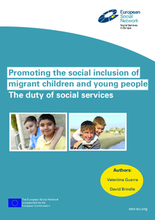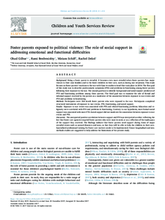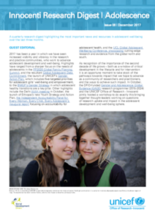Displaying 281 - 290 of 516
This study assessed child poverty, deprivation and social service delivery in refugee and host communities in selected districts in the country’s three major refugee-hosting areas: West Nile, a sub-region of Northern region that borders South Sudan; the country’s South West, which borders the DRC and Rwanda; and the capital, Kampala.
Special guardians have been tasked with safeguarding the rights of unaccompanied minors in Croatia and providing general assistance within the system of care during their stay and/or during the status recognition procedure. The authors of this study discussed the experiences of practitioners in the field and some of the most important challenges they are facing within the special guardianship system.
Este recurso proporciona consejos para los cuidadores y otros para ayudar a abordar las necesidades de los niños inmigrantes y refugiados que han experimentado la separación traumática.
This report aims to address some common and key themes emerging from a questionnaire and in-person meeting to discuss the role of the social service workforce in the inclusion of migrant children and young people.
This paper presents a community based participatory research project, which adopted a photovoice approach with seven unaccompanied asylum-seeking children (UASC) living in foster care in the United Kingdom.
This research collected rare and vital primary data by interviewing practitioners within looked-after children’s, residential, and respite services. The study established that practitioners lacked basic awareness of radicalisation and extremism, the Prevent strategy, and the Channel programme.
The first goal of this study was to describe posttraumatic symptoms (PTS) and problems in functioning among foster parents following their exposure to the war.
This research digest is the 8th in the series on adolescence. This edition focuses on protection from violence, health and development & learning.
This report presents a joint NGO roadmap for more fair and humane policies for refugee and migrant youth in Greece.
This report highlights initiatives underway that work towards addressing the care and protection of refugee, migrant and displaced children – initiatives that can be replicated around the world.









